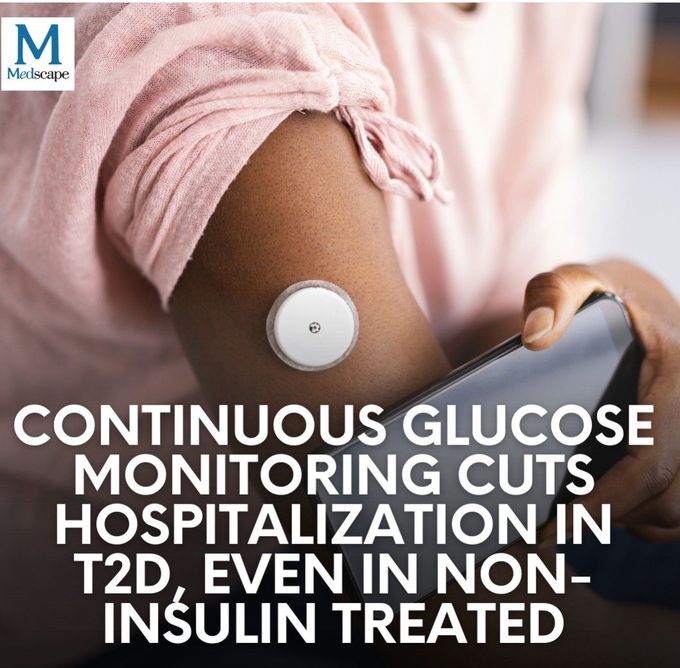


Continuous Glucose Monitoring
The use of continuous glucose monitoring (CGM) reduced the risk for hospitalization and improved glucose control in people with type 2 diabetes, regardless of insulin use, a new analysis of real-world data found. The data were presented at the European Association for the Study of Diabetes (EASD) 2024 Annual Meeting and simultaneously published in Diabetes, Obesity and Metabolism. The data on hospitalizations and A1c lowering were presented separately at EASD by two of the study investigators, Satish K. Garg, MD, professor of medicine and director of the Adult Diabetes Program at the Barbara Davis Center, University of Colorado, Aurora, Colorado, and Richard M. Bergenstal, MD, executive director of the International Diabetes Center of HealthPartners Institute, Minneapolis. The advantages of CGM have been established for people with type 1 diabetes and those with type 2 who require multiple daily insulin doses and others who are at a risk for hypoglycemia (such as those using sulfonylureas). In the United States, Medicare and other payers typically cover the devices for those groups but not others with diabetes. Data on the impact of CGM use on others with diabetes who don't use insulin and are not at increased hypoglycemia risk have been limited to studies with small sample sizes. In contrast, this new study used Optum's de-identified Market Clarity data of more than 79 million people, the authors said in their paper. Overall, similar reductions were seen in hospitalizations and glucose-lowering benefits from CGM in people who were not using insulin, those using only basal insulin, and those using multiple daily insulin doses. "CGM is one therapy that's going to keep people from going into the hospital and improve their overall care, period. The data is pretty strong," Garg told Medscape Medical News in an interview. By: Medscape

